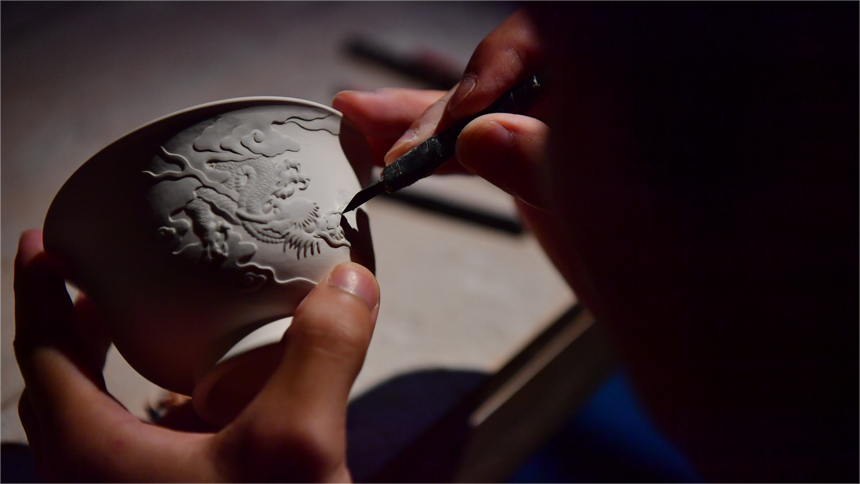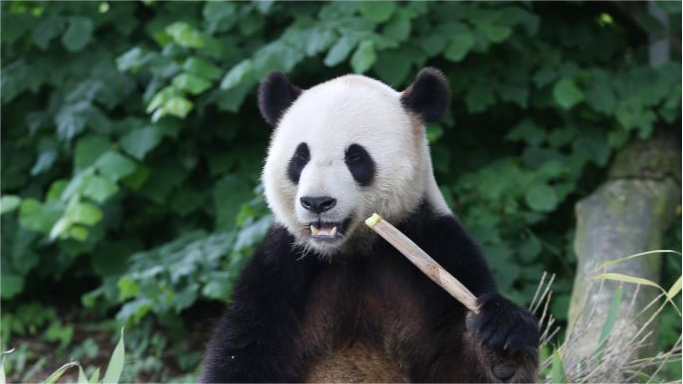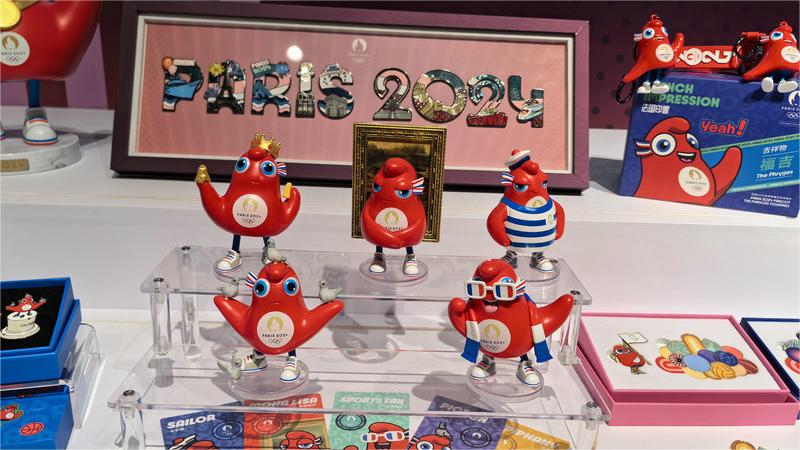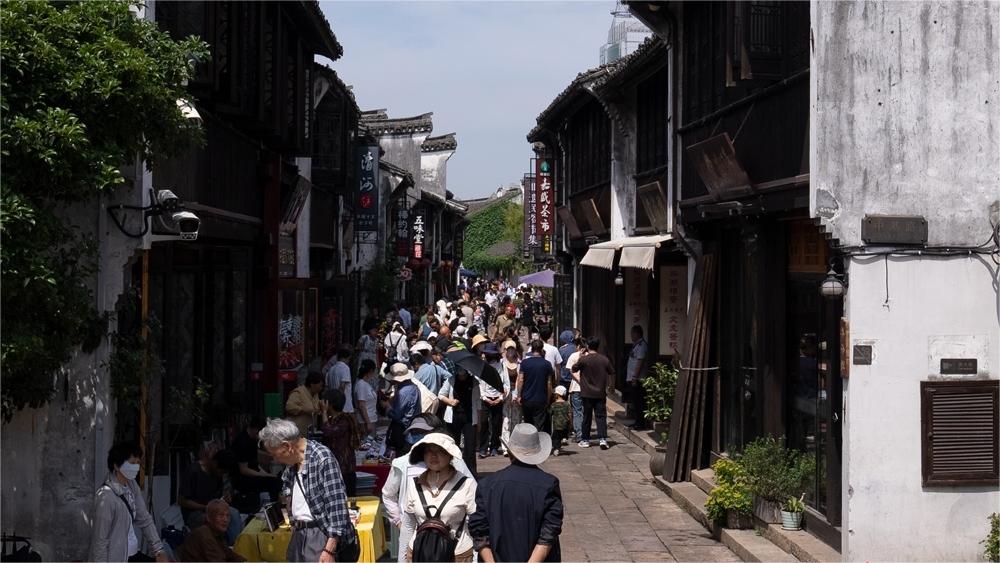Feature: Hong Kong's first literary museum sows seed of hope and exchange
HONG KONG, June 3 (Xinhua) -- Cantilevered balconies, tiled pitched roofs, timber French doors ... 7 Mallory Street, Wan Chai, Hong Kong houses a cluster of 10 "grade II historic buildings" built in the 1910s which has been revitalized into a catering, retail and event space.
On the third floor, a museum dedicated to the city's literature and covering an area of about 2,000 square feet (185.8 sq meters), was recently unveiled to the public, giving a unique twist to one of the busiest commercial areas in Hong Kong.
"This is the first literary museum in Hong Kong's history, and probably the most 'mini' literary museum in the world," said Poon Yiu-ming, curator of the Museum of Hong Kong Literature and chairman of the Federation of Hong Kong Writers, proudly and jokingly. "It is a green bud in the spring, breathing new vitality and hope to Hong Kong's literature."
The museum quietly records the exchange and influence of literature and genres among writers from the Chinese mainland and local Hong Kong. In the 1970-80s, the reform and opening up drive made Hong Kong a "cultural station" for mainland writers on their journey to the overseas for exchanges. That is how Poon became acquainted and later friends with iconic literary figures including Wang Meng, Ai Qing and Xiao Qian.
Hong Kong boasts its irreplaceability as a "cultural station," with the nourishment from the literature lectures by these mainland writers and the inspiration from Western literature such as stream of consciousness writings, Poon said.
"As an undeniable melting pot and metropolis, Hong Kong should have its own literary museum," he affirmed. In 2004, Poon, along with more than 30 other Hong Kong literary and academic figures, jointly proposed the establishment of the Museum of Hong Kong Literature.
Now 20 years later, that dream came true. "We finally have a space and a platform of our own. We hope that through this platform, we can contribute to the collection, categorizing, research and promotion of Hong Kong literature," Poon said.
Coming up, Poon's team is racing against time to make an oral history of the older generation of Hong Kong writers and their families. Besides protecting the relevant documents and rescuing the fading history, they are also introducing high-tech means of e-scanning and turning manuscripts into e-archives for better preservation, research and display.
Notably, the museum also pays tribute to writers who moved south from the Chinese mainland to Hong Kong, bringing a traditional Chinese culture vibe. In May, an exhibition was held to honor writers including Xu Dishan and the late Chinese martial arts novelist Louis Cha Leung-yung, more widely known by his pen name Jin Yong. In its permanent exhibition, the museum showcases manuscripts, publications and autograph books of many southern writers such as Eileen Chang and Xiao Hong.
During the age of martial arts novels in Hong Kong literature started in the early 1950s, Jin Yong and Chen Wentong, better known by his pen name Liang Yusheng, were crowned as the peak in the creation of new type martial arts novels, and the popularity of martial arts fictions also drove the flourishing development of kung fu movies in Hong Kong. In Hong Kong film, TV and other pop culture products, one can easily find these familiar elements.
"The fast-paced lifestyle and high pressure of living in Hong Kong led readers to seek spiritual solace and comfort through martial arts novels," said Poon. Martial arts fictions also became an important pillar of Hong Kong's literary landscape.
To appeal to a wider public and particularly the younger generation, there is a gallery tailor-made for children through holographic projection and other vivid and interesting displays.
"It is an important responsibility of the museum to inherit and promote literature, especially to sow the seeds of love for literature among the younger generation," Poon said. To this end, the museum has partnered with Hong Kong's educational authorities to organize contests as well as campus or community events to bring fresh literary experience for young schoolers, and is planning to organize short-term master classes in literary writing at universities in Hong Kong.
The museum has co-built with other museums and institutions a Guangdong-Hong Kong-Macao Greater Bay Area literary alliance, with more regional and international seminars being in the pipeline.
"We want to reach out to the public, and promote literature in ways that are more accessible to them." "Literary museums and literature belong not only to writers, but also to the public," Poon said, adding "Culture cannot do without literature."
The hall is small, but Poon's vision is big. Hopefully, the literary museum can build a bridge to connect traditions with innovations and the local Hong Kong culture with that of the Chinese mainland and the overseas, Poon said.
Photos
Related Stories
- Museum on Chinese scientists opens to public
- 14 people convicted of breaching national security law in Hong Kong
- Hong Kong plays bigger role for China to raise treasury bond funds
- Hong Kong police enforce Safeguarding National Security Ordinance with 6 people arrested
- Hong Kong to strengthen int'l cooperation to enhance international shipping center status
Copyright © 2024 People's Daily Online. All Rights Reserved.









